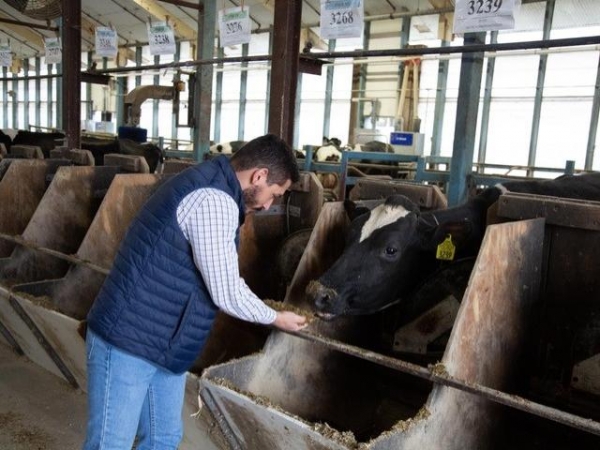Supplementing the feed of high-producing dairy cows with the botanical extract capsicum oleoresin, obtained from chili peppers, or a combination of that extract and clove oil resulted in the animals using feed energy more efficiently and emitting less methane from their largest stomach, according to a new study conducted by Penn State researchers.
Supplementing the feed of high-producing dairy cows with the botanical extract capsicum oleoresin, obtained from chili peppers, or a combination of that extract and clove oil resulted in the animals using feed energy more efficiently and emitting less methane from their largest stomach, according to a new study conducted by Penn State researchers.
Adding those substances, sometimes referred to as essential oils, to the cattle’s rations resulted in improved efficiency of energy utilization in peak-lactation dairy cows. According to Alex Hristov, distinguished professor of dairy nutrition, corresponding author of the study, the cattle would use the available energy for body weight gain rather than milk yield or milk components.
The findings, recently published in the Journal of Dairy Science, suggest a potential positive physiological and environmental effect of supplementation with this combination of botanicals. From previous studies, the researchers knew that botanicals have the potential to modify fermentation in the dairy cow’s largest stomach, called the rumen, Hristov explained, adding that he has become increasingly interested in post-ruminal, physiological effects of botanicals.
Read more at: Penn State University
Researcher Leoni Martins, doctoral student in the Department of Animal Science, led a 10-week experiment that included 48 Holstein cows. He is pictured here with a cow in the Penn State Dairy Barns. (Photo Credit: Penn State. Creative Commons)




